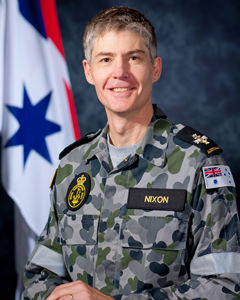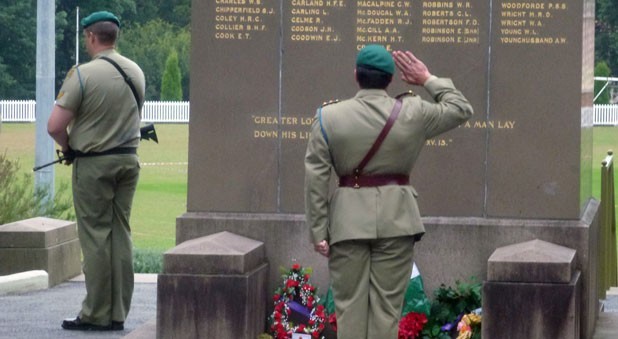As a lifelong Christian, I must admit this thought had never once crossed my mind. As significant as Anzac Day is for me as an Australian and as a member of the Australian Defence Force, no sacrifice in battle—however terrible or inspirational—can ever eclipse the once-for-all sacrifice of Jesus; or the incarnation that preceded it; or the resurrection that followed it.
Yet as I watched some of the live coverage from dawn services on the far side of the world last year, one reporter, clearly moved, stated emphatically that Anzac Day is “much more important than Christmas”. The studio anchor seemed to take the statement in her stride, but I was quite taken aback.
I couldn’t get this extraordinary statement “much more important than Christmas” out of my mind, so I asked Google. The first hit was a piece of research by McCrindle asking ordinary Aussies this very question – which special day is the most important? And, to my surprise 30% thought Anzac Day was. You may relieved that for 37%, it was still Christmas. But not much in it. (The clear winner, for interest, with 48% of the vote was Mother’s Day. Also worth noting as we plan the church year!)
The Australian War Memorial website’s ‘History of Anzac Day’ page opens with the statement “Anzac Day, 25 April, is one of Australia’s most important national occasions”. There can be no doubt that much is true. The New Zealand Government’s ‘New Zealand History’ website refers to Anzac Day as “A sacred holiday”. So, it may not just in this side of the “ditch” that views on “holy-days” are being re-cast.
Certainly if the crowds are anything to go by, Anzac Day is coming home very strong in recent decades. The dawn service that I have been attending with my kids has grown from a few hundred in a small park to a stage-managed event for thousands. The live TV crosses to locations like Anzac Cove or key battle sites in Europe reflect a similar growth. There is a real sense of ‘pilgrimage’; a once-in-a-lifetime spiritual journey for Aussies. And the faces in the crowds are getting younger, not older.
Recently, my family spent both Easter and Anzac Day in a very remote NSW community. On Good Friday, the combined attendance at all three churches may have been about 100—not too bad for a small community. The following week, the Anzac Day service saw the entire community turn out—a crowd of some 500. True, it was Easter and not Christmas—but it was an interesting comparison.
April 25 became Anzac Day in 1916, marked by veterans (yet to make the journey home) marching through the streets of London. The way it was commemorated from then on in both Australia and New Zealand was invariably by a church service (or Anzac Service, as it came to be known). The Dawn Service, usually held in a public and symbolic location rather than inside a church, combined elements of military and Christian tradition. I’ve always taken it for granted that church services were held in churches, or led by clergy, without really wondering why.
I was entirely unaware that a huge proportion of the Aussie volunteers who sailed to fight in WWI were Christian believers and faithful churchgoers. Robert Linder’s book The Long Tragedy: Australian Evangelical Christians and the Great War, 1914-1918 examines the curious ‘airbrushing’ out (my word, not Linder’s) of the religious beliefs of the ‘diggers’. He suggests that a disproportionate rate of enlistment by evangelical protestants points to as many as 40% of Aussie soldiers being from this one Christian tradition alone. Other historians suggest that these ‘wowsers’ (as they came to be known) made up around 50% or more of the Australian Imperial Force (AIF) in WWI. Australian churches were devastated by the numbers of young men (clergy and laity) killed in the Great War.
Hard Jacka: The Story of a Gallipoli Legend by Michael Lawriwsky is the biography of VC-winner Albert Jacka, one of the greatest war heroes our nation has ever known. He went on to be promoted to officer in the field and was also awarded the Military Cross. Jacka was a teetotaller and a member of his local church choir prior to enlisting. He famously refused to salute or be saluted—not because he was an irreverent, knock-about Aussie larrikin, but because he believed all men were created equal before God.
What would these diggers make of the idea that Anzac Day is more important than Christmas? Or Easter? What would they make of the idea that their sacrifice has become more important to Australians than the sacrifice of their God? That is worth thinking about.
But while it may be tempting for Christians wring our hands at the demise of Christmas, or to denounce Anzac Day as having become idolatrous, perhaps the best way to go is to make the very most of the opportunities it gives us (just like we do at Christmas amidst the baubles and commercialism, and Easter awash with chocolate). Surely this is made easy when so many (half?) of those men who where prepared to die serving others did so as followers of a saviour who did no less for them. I don’t think it is too much to join the dots between the two. Do you?
So whether the topic is selfless service, the cost of freedom, the shedding of blood, innocent life spent, or even mateship, everything from a public prayer, to an Anzac address, to a chat over a barbie ought to provide us a timely opportunity to point people appropriately to Jesus—our saviour and their saviour. As for the Sunday prior (Anzac Sunday as it is known) surely it is a no-brainer for every church to approach local RSLs, schools and community groups and offer to host a service to remember the Anzacs.
Lest we forget.
 The Rev Andrew Nixon served as a Lieutenant Commander in the Navy prior to entering the ministry. He is now a reserve Navy chaplain.
The Rev Andrew Nixon served as a Lieutenant Commander in the Navy prior to entering the ministry. He is now a reserve Navy chaplain.
























